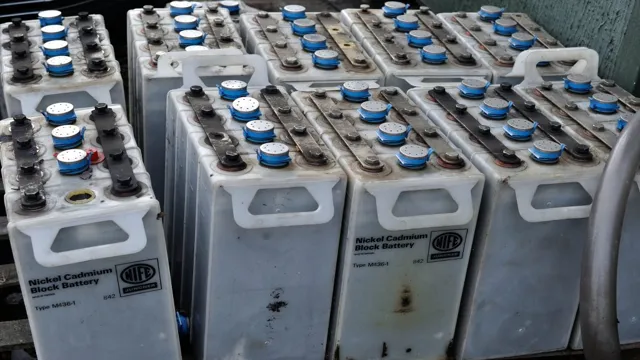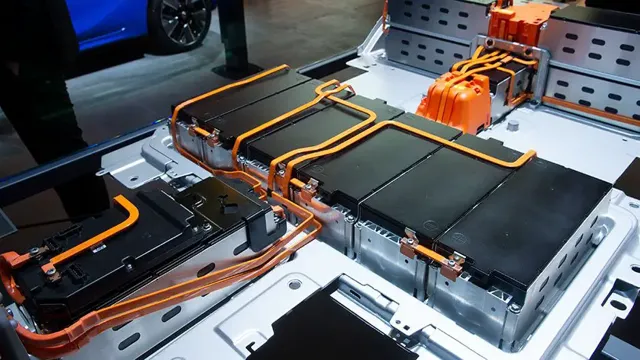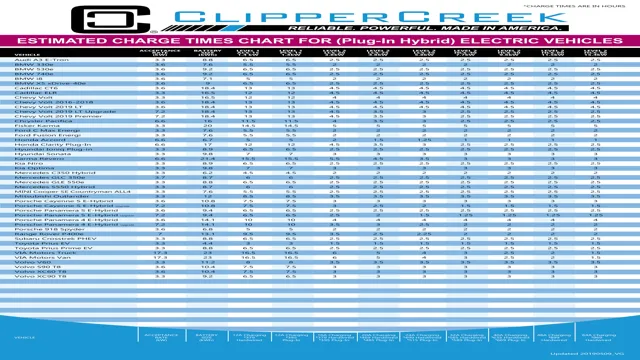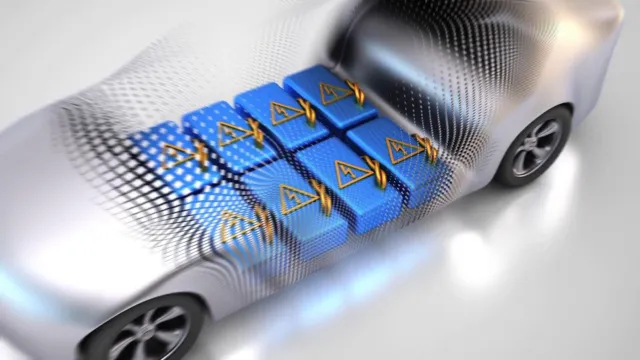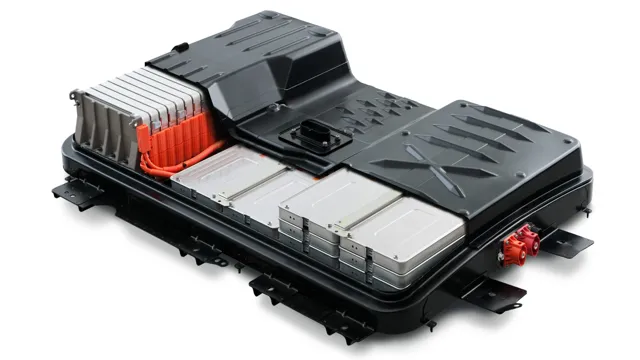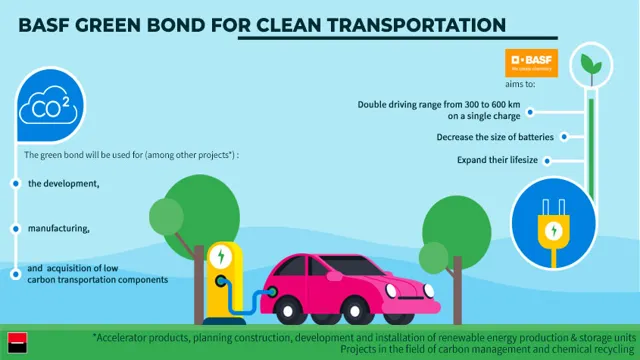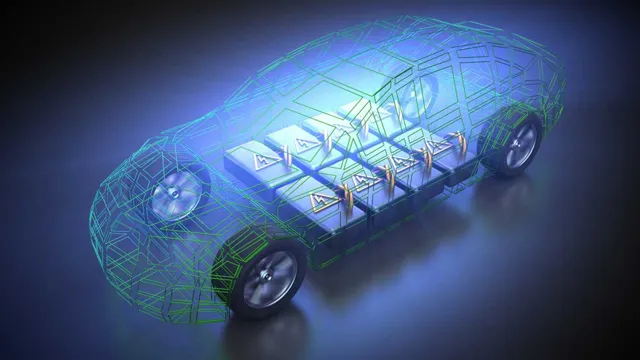Powering Up: Exploring the Different Types of Electric Car Batteries for Efficient and Sustainable Transportation
Electric cars are gaining traction in the automotive industry as the world shifts towards sustainable and environmentally-friendly transportation options. However, electric cars’ batteries are the primary limiting factor for many buyers, as they determine the vehicle’s range, performance, and charging time. As such, understanding the various types of electric car batteries can make a world of difference for someone in the market for an electric vehicle.
In this blog, we delve deep into the world of electric car batteries to understand their differences and how they affect the driving experience. Are you ready to join us? Let’s go!
Lithium-Ion Batteries
When it comes to electric car batteries, there are different types available in the market. One of the most popular ones is the lithium-ion battery. This type of battery is known for its high energy density and long life span, making it ideal for electric vehicles.
The lithium-ion battery consists of two electrodes, the cathode and anode, separated by an electrolyte. When charged, lithium ions move from the cathode to the anode, creating an electric current. One of the advantages of this battery type is its efficiency in charging and discharging, giving electric cars a longer driving range.
Furthermore, it is relatively lightweight, which contributes to the overall weight reduction of the car. However, there are some concerns about the safety of lithium-ion batteries, especially when they are damaged or exposed to high temperatures. Despite this, the popularity and advantages of lithium-ion batteries continue to make them a top choice for electric cars.
Advantages and disadvantages of Lithium-Ion Batteries
Lithium-Ion Batteries have become the primary choice for powering mobile devices, electric vehicles, and renewable energy systems. The advantages of using lithium-ion batteries include high energy density, long cycle life, and low self-discharge rate. It also provides low maintenance, quick charge ability, and no memory effect.
However, Lithium-ion batteries have some disadvantages too. These batteries are more expensive than other types of batteries, and there is a chance of them overheating and exploding if overcharged or exposed to high temperatures. Besides, due to the high demand for lithium, there is a concern about the availability and sustainability of lithium resources.
Despite these challenges, Lithium-Ion Batteries still remain the best option for powering various technologies due to their benefits and popularity in the market.
Examples of cars using Lithium-Ion batteries
In recent years, there has been a growing shift towards using Lithium-Ion batteries in cars due to their high energy density, long lifespan, and relatively low weight. One example of a car that uses Lithium-Ion batteries is the Tesla Model S, which boasts a range of up to 402 miles on a single charge. Another popular example is the Nissan Leaf, which has a range of up to 150 miles and has been widely regarded as one of the most affordable electric cars on the market.
Other notable cars using Lithium-Ion technology include the BMW i3, Chevrolet Bolt EV, and the Hyundai Kona Electric. As more car manufacturers continue to invest in Lithium-Ion batteries, we can expect to see even more innovative and environmentally friendly vehicles hit the roads in the coming years.
Lead-Acid Batteries
When it comes to electric car batteries, there are various types available in the market, and each of them has its own set of advantages and disadvantages. One of the most common types of batteries used in electric cars is the lead-acid battery. This battery type has been in use for more than a century and is still popular due to its low cost and reliability.
Lead-acid batteries consist of lead and lead oxide plates immersed in an electrolyte of sulfuric acid, which produces electricity through a chemical reaction. However, they are heavy, bulky, and require regular maintenance, making them less ideal for some applications. Despite this, lead-acid batteries are an excellent option for start-stop systems and mild hybrid vehicles that require quick bursts of power.
With the recent advancements in battery technology, it’s clear that other battery types such as lithium-ion have surpassed lead-acid when it comes to electric vehicle performance. However, lead-acid’s low cost and widespread accessibility make it an attractive option for the present day.
Advantages and disadvantages of Lead-Acid Batteries
Lead-acid batteries are one of the most widely used and well-known types of rechargeable batteries. They are commonly used in automobiles, UPS systems, and backup power applications. One significant advantage of lead-acid batteries is that they are relatively cheap and readily available.
They have a long lifespan, can handle high current loads, and are relatively safe to use. On the downside, lead-acid batteries can be quite heavy and bulky, making them less portable than other types of batteries. They are also prone to failure if not maintained correctly and require regular maintenance to ensure they perform at their best.
Additionally, lead-acid batteries are not environmentally friendly and contain lead, which is a toxic material that can harm both humans and the environment. Overall, lead-acid batteries can be a good option for some applications, but their disadvantages need to be considered when deciding if they are the right choice for a particular use case.
Examples of cars using Lead-Acid batteries
Lead-acid batteries have been a popular choice in the automotive industry for many years. In fact, they are still the most used battery type in cars today. One reason is that they are relatively inexpensive, which is important when it comes to affordability for drivers.
They are also reliable and can withstand harsh weather conditions. Many car models use lead-acid batteries, including the Honda Accord, Toyota Corolla, and Nissan Altima. Additionally, lead-acid batteries are commonly used in off-road vehicles and boats.
While there are newer and more advanced battery technologies available on the market, lead-acid batteries continue to be a practical and cost-effective solution for many automobile manufacturers.
Nickel-Metal Hydride Batteries
One of the different types of electric car battery is nickel-metal hydride (NiMH) batteries. These were commonly used in early hybrid cars and are still used in some electric car models today. NiMH batteries are a type of rechargeable battery that uses a chemical reaction to store energy.
They have a slightly lower energy density compared to lithium-ion batteries, but are less expensive and have a longer lifespan. NiMH batteries are also considered more environmentally friendly as they do not contain toxic metals such as lead or cadmium. However, one downside is that they are bulkier and heavier than other types of batteries, making them less ideal for small or lightweight electric cars.
Overall, the choice of battery type largely depends on the specific needs and priorities of the electric car manufacturer and driver.
Advantages and disadvantages of Nickel-Metal Hydride Batteries
Nickel-Metal Hydride Batteries Nickel-metal hydride (NiMH) batteries are a popular alternative to traditional alkaline batteries. They have some advantages over other battery types, such as higher energy density and longer life. NiMH batteries are also more environmentally friendly, with no toxic heavy metals used in their construction.
However, there are a few disadvantages to using NiMH batteries as well. They are more expensive compared to alkaline batteries, and they have a higher self-discharge rate, meaning they lose their charge over time even when not in use. Additionally, NiMH batteries can be sensitive to extreme temperatures, both hot and cold.
Overall, while there are some drawbacks to using NiMH batteries, they can be a good choice for those looking for a longer-lasting and more environmentally friendly battery option.
Examples of cars using Nickel-Metal Hydride batteries
Nickel-Metal Hydride Batteries Nickel-metal hydride batteries are one of the most commonly used rechargeable battery technologies in hybrid and electric cars due to their higher energy density compared to other battery types such as Lead Acid. Many car manufacturers have utilized this battery technology for their hybrid vehicles, making them a popular choice among consumers. A few examples of cars that use nickel-metal hydride batteries include the Toyota Prius, Honda Insight, and Honda Civic Hybrid.
These batteries are known for their long-lasting durability, the ability to recharge quickly, and their ability to store and provide large amounts of energy efficiently. While newer battery technologies have emerged, nickel-metal hydride batteries continue to be a reliable option for many hybrid and electric vehicles on the market today.
Solid-State Batteries
When it comes to powering electric vehicles, the type of battery used is crucial. One of the most promising and exciting developments in recent years is the emergence of solid-state batteries. Unlike traditional lithium-ion batteries that use a liquid electrolyte, solid-state batteries use a solid material as the electrolyte.
This has several benefits, including increased energy density, faster charging times, and improved safety. Solid-state batteries also have the potential to be more environmentally friendly as they don’t rely on heavy and expensive metals like cobalt. While still in the development phase, many major automakers are investing in research and development to bring solid-state batteries to market.
The use of different types of electric car batteries, including solid-state batteries, is key to driving the future of electric mobility.
Advantages and disadvantages of Solid-State Batteries
Solid-State Batteries Solid-state batteries are the latest innovation in the world of batteries, with potential applications ranging from smartphones to electric cars. These batteries use solid materials instead of the liquid electrolytes found in traditional batteries, which make them safer and more stable. One of the major advantages of solid-state batteries is their higher energy density, which means they can store more energy than traditional batteries of the same size.
They also have a longer lifespan, can charge faster, and are less prone to leakage or overheating. However, there are some disadvantages to solid-state batteries as well, including their higher cost of production and the fact that they are still in the early stages of development.
Conclusion
In conclusion, when it comes to electric car batteries, there are a variety of options available. From traditional lead-acid batteries to advanced lithium-ion cells, it’s clear that innovation and technology continue to play a huge role in the evolution of electric vehicles. Whether you’re looking for a long-range option or one that’s eco-friendly, there’s a battery out there for you.
So the next time you hit the road in an electric car, remember that it’s not just about the battery; it’s about the endless possibilities and exciting potential that comes with the EV revolution.”
FAQs
What are the different types of electric car batteries available in the market?
There are various types of electric car batteries available, including lead-acid, nickel-metal hydride (NiMH), and lithium-ion (Li-ion). Each type has its own advantages and disadvantages.
How does the lithium-ion (Li-ion) battery differ from other electric car batteries?
Li-ion batteries have a higher energy density, are lighter, and have a longer lifespan compared to other batteries like lead-acid and NiMH. However, they are more expensive to produce.
What is the most popular type of electric car battery used currently?
Lithium-ion batteries are the most popular type of electric car battery used currently due to their high performance and better energy efficiency.
Can the same type of electric car battery be used in all models of electric cars?
No, different electric car models require different types of batteries, depending on their power, range, and size requirements.
Are there any new developments in electric car battery technology?
Yes, there are ongoing research and development in electric car battery technology, including solid-state batteries, which are safer, have higher energy density and longer life, and are more environmentally friendly than traditional batteries.
